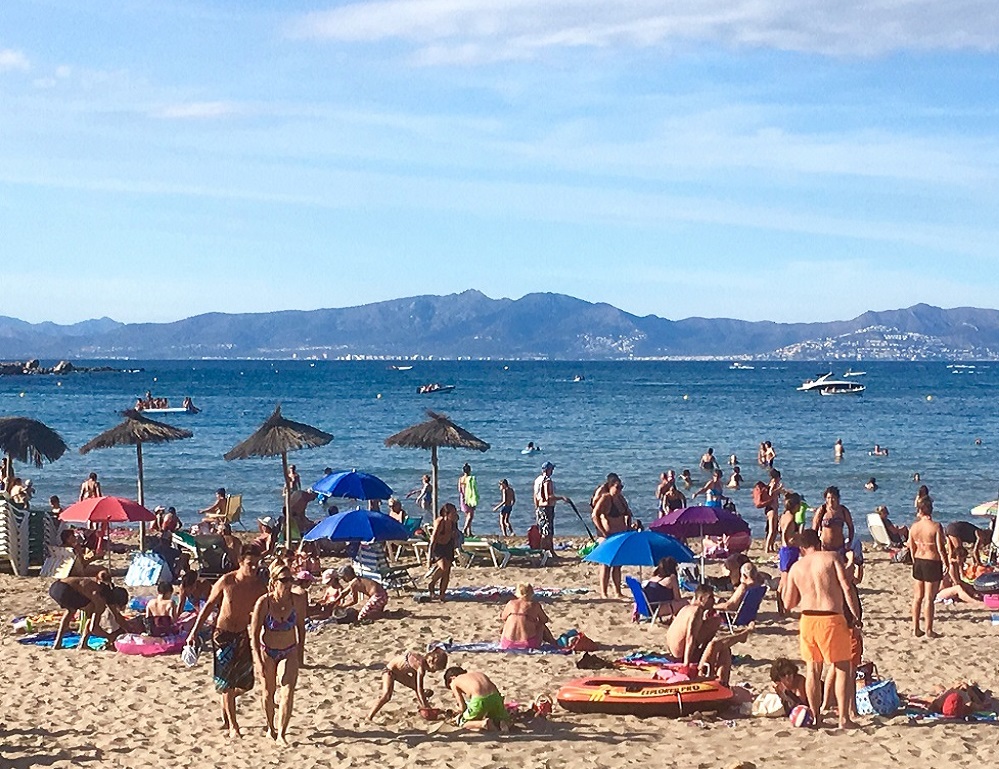We’re weeks away from high season in resorts around the Med so owners of holiday lets should be booked out by now. If you’re looking for a lettable second home, consider these top ten tips for maximising your income.
1. Get to grips with the local rules for holiday lets. You may need to register with the local municipality, apply for a licence, meet certain and health and safety standards and pass on a tourist tax from your guests. A local property management agency should be able to provide more information.
2. Choose your property management/rentals agency carefully. Remember, they will be your local eyes and ears on the ground. Ask for testimonials and speak to existing clients to check their history and efficiency. Typical fees range from 15-20 per cent of the rent received. As well as marketing your property, services they offer will include maintenance of your property, cleaning and changeovers, meeting and greeting visitors, and being on call to deal with guests’ questions.
3. If you choose to manage your property yourself, be prepared to work hard. You will need to answer all enquiries from prospective renters, keep a calendar of arrivals and departures and maintain the premises to a high standard. If you don’t use an agency, think about who will welcome your guests and manage changeovers.
4. Present your property well. Take really good photos for your advertisement, not only of the interior but also of the surroundings. Cleanliness is paramount and tourists from all over the world expect high standards. Think of small things you would like to find if you were staying in your home – little extras count for a lot and earn good reviews. TV, Satellite, Wi-Fi and DVDs are often expected these days!
5. Offer a welcome pack. Sometimes visitors arrive late, the shops are closed and they don’t want to go to out to eat. A basket of essentials is always welcome – eggs, butter, bread, tomatoes, salad, water, beer and/or wine.
6. Provide information about the local area. Leave the district’s calendar of events, leaflets about local attractions, music festivals, sports and pretty beaches. Mention all these in your advert. Direct guests to local tourist offices for more options. Don’t forget to mention local markets of all descriptions. Holidaymakers love markets!
7. Get suitable insurance. When choosing your building and contents insurance policy, check it includes adequate cover for holiday rentals, including the necessary third party liabilities and cover for vacant periods. There are UK insurers that specialise in these types of policy, or look locally.
8. Use Smart Currency Exchange for transferring money. Owning and running a holiday let means you’re likely to be sending money to and fro between your foreign and UK bank account. This could be sending euros to pay the mortgage or bills, or repatriating rental income into your sterling account – everyone’s requirements will be different. Always use a currency specialist like Smart Currency Exchange to make these transfers – they will give you a better exchange rate than either your UK or foreign bank, as well as offering a faster and more personal service.
9. Price your property realistically. If you’re advertising your property on websites, find similar rental properties to yours on the internet to get an idea of rental rates, and what is included in those rates. You will need to change your rates according to the popularity of the season. Check your local events calendar for important dates that may enable you to charge a premium to tourists booking for a particular event (motor racing, a fashion show or a carnival for example). Also, decide how you want payment of deposit, damage deposit and balance. An example could be: 30 per cent deposit to be paid upon booking by cheque, transfer or PayPal. Balance to be paid six weeks before arrival via the same method. Damage deposit to be sent by cheque with the balance (or handed in on arrival in return for an up-to-date inventory) and returned or destroyed once the apartment has been checked after the holiday.
10. Pay tax on your rental income. You do this by filing a local tax return, declaring your income from rentals and paying any required tax. Use a local accountant to make life easier and ensure you offset any allowable expenses and benefit from any tax relief. The UK has double tax treaties with most European countries so you shouldn’t pay the same tax twice on earnings.
As a final tip, make sure you book weeks for yourself at the start of each year! You may want to avoid going at peak season, in order to maximise rental income. See how things pan out for the first year, get an idea of realistic annual income and then plan your trips accordingly.
Written by Overseas Guides Company.
For more information on buying abroad get your FREE Country Buying Guide!




See all available country guides
If you are considering an overseas property purchase, whether for lifestyle or investment, opening a no-obligation account with FCA-authorised Smart Currency Exchange will enable you to benefit from their competitive exchange rates and specialist currency knowledge, ultimately saving you money and time. For more information, download Smart Currency Exchange’s free report or visit the Currency Zone.

